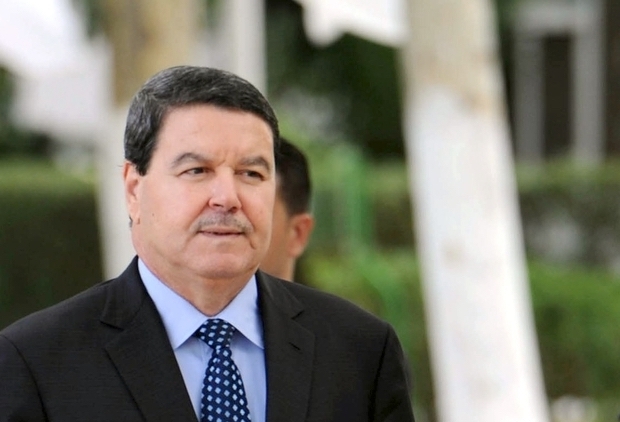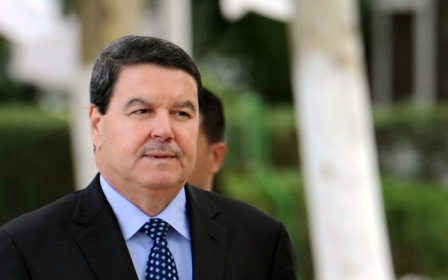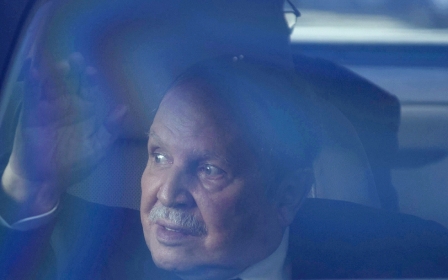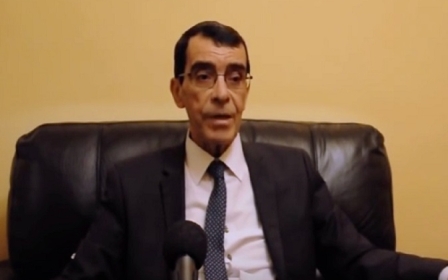Algerian police: After the purge, a restructuring
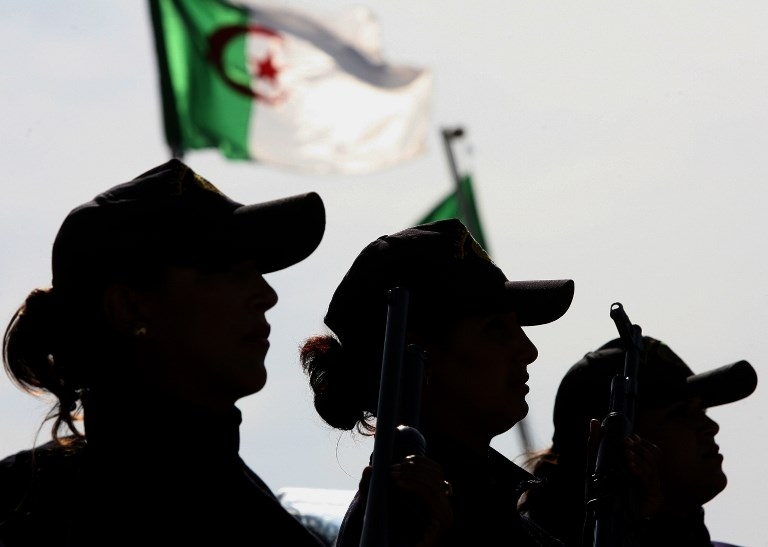
ALGIERS - A powerful police boss has been dismissed; six security chiefs from Algeria's wilayat (regions) have been sacked; the director of the border police and the director of the General Intelligence (RG) have been fired; and 30 of the country's 48 police transmissions directors have been removed from their posts.
In less than a month, Algerian police – the largest security corps in the country, also known as the Directorate General for National Security (DGSN) – has sustained violent tremors.
The snowball effect began with the sudden dismissal of Major General Abdelghani Hamel, 62, on 26 June, in the wake of a major cocaine seizure by the Algerian army off the coast of Oran.
On 29 May, navy special forces a launched an operation on a ship from Spain, only to discover 701kg of cocaine on board, presumed to have come from Brazil.
Reacting to a leak in the press accusing his own personal driver of having ties with the alleged dealer – an influential Algerian meat importer – Hamel puzzled the public by declaring: "If you want to fight corruption, you need to be clean yourself."
If you want to fight corruption, you need to be clean yourself
- Abdelghani Hamel, former head of the Algerian police
A few hours later, the police boss was dismissed, to everyone's astonishment. Who would have suspected that this faithful supporter of President Abdelaziz Bouteflika could have been so brutally let go? Few in Algiers would have predicted this, especially given that a number of foreign analysts and diplomats had hypothesised that Hamel could become a potential successor to Bouteflika, whose frail health has been the topic of conjecture for years.
However, Hamel's statement cast doubt on the investigators in charge of the case, strongly displeasing decision-making circles.
"The cohesion of security bodies and institutions must remain a priority to face the various challenges at hand - namely combating corruption, which is taking on alarming dimensions and affecting nerve centres within the state itself," a high-ranking source had told Middle East Eye at the time. "This will not go unpunished."
Lack of coordination
Hamel also landed in hot water for another statement he made on 26 June, the day of his dismissal: "We will forward to the courts the files in our possession concerning this case."
This small sentence was tantamount to acknowledging that the police had important information about the cocaine case, which until then it had withheld from the gendarmes – the security forces responsible for the investigation.
Hamel's sacking was followed by a broad purge within police command. However, an official source told MEE: "What is happening in the police at the moment far exceeds merely changing bosses. It is rather a matter of changing the working and management methods of this big machine."
According to the source, 79-year-old retired Colonel Mustapha Lahbiri, who is now replacing Hamel at the head of the police after spending 18 years at the head of civil protection, presented Bouteflika with a "work plan" aiming to "reform" this security corps.
Lahbiri – who has spent most of his career in the army, from when he first became a maquis résistant at the age of 17 during the war of independence until his retirement in 1989 – wants to "stop the war between departments," another security source contacted by MEE confirmed.
This proposal allegedly emerges from several reports, prepared by various security and intelligence bodies and transmitted to the highest state authorities.
These reports indicate that the sensitive information necessary to handle very important investigations had until now been "scattered" among several security corps.
"It would have been possible to expedite these investigations if coordination had been more thorough, even locally and between lower levels," a source said.
Sabotaging investigations
"In 10 years, the Directorate General of National Security became a very important security corps under Hamel," an expert in Algiers stressed. In the wake of his sacking, MEE reported that the move was then seen as a way of creating necessary checks and balances on the presidential circle, given the hegemony of the DRS apparatus until today – despite the fact that the Algerian secret services were officially disbanded in January 2016.
"According to decision-makers, the biggest mistake made by the former police boss remains the absence of coordination with the rest of the Algerian security services," other sources agreed.
This lack of coordination in recent years has allegedly "made very sensitive investigations - some of which were tied to national security - difficult, as each conducted their own investigations independently," one of the sources said.
"The multiplication of reports that ended up in high places, while the country was facing wars of influence between mafia circles supported by politicians, has been harmful to us," an investigator in charge of major corruption cases acknowledged.
The big security corps bosses were in sync, so why was the police playing solo?
- Official Algerian source
"This was not done with the intention of causing harm, but it is just that some security corps, like the police, had become used to going it alone and to having first-hand access to the presidency," a former senior police officer said.
"The bosses of the major security corps were in sync, so why were the police playing solo?" the officer reluctantly added. "Here lie our suspicions: these actions may have been remotely controlled to interfere with or prevent investigations by other security departments. We are dealing with investigations into serious corruption cases, but above all, those on drug traffickers."
In mid-July, once again in Oran, nine members of police staff, including one high-ranking officer, were remanded in custody for covering up the drug trade of a local baron currently on the run, who has managed to evade 22 warrants. At the time of his arrest, several police officers' names were found listed in his mobile phone directory.
The return to "immediate security coordination between senior police officers and their colleagues in other security departments," as a source put it, will be the biggest challenge facing the police corps.
Redeploying General Intelligence
Another important point is included in the new police chief's work plan: strengthening the prerogatives of the DGSN’s General Intelligence (RG) division.
The RG director, Djilali Boudalia, was dismissed in July and replaced by one of his regional directors, Slimane Benyettou.
"Before he became head of the RG, Boudalia was responsible for communication and external police relations; his replacement is an officer who spent his entire career in the RG," one source said.
"Under Hamel, the RG could no longer investigate senior police officers, for example, but this will change to avoid any abuse of power or influence within the police," a source within the DGSN asserted.
Under Hamel, the RG could no longer investigate senior police officers
- Police source
Lahbiri has also layed out a third element of reform: the re-establishment of the Republican Security Units (RSU, the equivalent of riot police), which were dissolved and transformed into mere law enforcement units under the wilayat security chiefs' leadership. Hamel had dissolved this police corps, following an unprecedented URS strike in October 2014.
"The redesign of services will continue," an official source said. "The alarm was sounded with this massive cocaine case and its ramifications in sensitive apparatus. There is no security corps in Algeria at the service of a single man. We'll show no mercy!"
To back up his statements, our interviewee brought up one of the recent decisions made after Hamel's dismissal: "We were instructed to remove all the former DGSN leader's portraits, which had sometimes hung alongside the president of the republic's portrait, from police premises throughout the national territory - a first in the country's history.”
- The article is based on an a translation by Dominique Macabies of a story that was originally published by Middle East Eye's French website.
New MEE newsletter: Jerusalem Dispatch
Sign up to get the latest insights and analysis on Israel-Palestine, alongside Turkey Unpacked and other MEE newsletters
Middle East Eye delivers independent and unrivalled coverage and analysis of the Middle East, North Africa and beyond. To learn more about republishing this content and the associated fees, please fill out this form. More about MEE can be found here.


